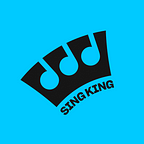How has technology changed our attitudes towards singing and performance? Can karaoke improve your health? Do Gen Z sing differently? And why do humans turn to singing in times of crisis?
Since its inception in 1971, our relationship with karaoke has remained largely unchanged. Until now. In our new report, Virtual Voices, we challenge existing perceptions of karaoke as a late-night, alcohol-fuelled pursuit, and explore how a combination of factors, including the pandemic and the rise of Gen Z ‘Digital Natives’, have transformed it from an occasional group activity, to a mass market pastime enjoyed by millions, often sober, solo and at home.
We spoke to 1,000 participants aged 13–55 across five global markets (UK, US, Brazil, Indonesia and the Philippines) to better understand how our relationship with singing and karaoke is evolving around the world. To help us contextualise our findings, we interviewed five experts globally across the fields of academic and cultural research, karaoke experts and TikTok creators to provide additional insights.
2020 was the year in which we adapted to a new world order: one where reliance on technology increased exponentially, and where wellness — both physical and mental — became top priorities around the world.
As we continue to navigate through the pandemic, we are experiencing a seismic shift in our online consumption and habits. When the world went into lockdown, confining us to our homes, we pivoted online in our millions. The internet became the gym, the school, the office. We ‘gathered’ in vast numbers to attend concerts in games like Fortnite and on YouTube. Though the online migration of karaoke may have begun some time ago, the pandemic has undoubtedly acted as catalyst in a huge surge in online activity. Virgin Media’s Karaoke app experienced a 124% increase in usage time, while Singa had a 700% increase in new sign ups in one week in March. Over on YouTube, we experienced a 20% jump in views from February to March 2020: our highest monthly jump ever.
The digital ripple effect can be seen in our report which showed that 64% of respondents would prefer to sing along to their favourite artists from home than see them live.
Across social media too, our attitudes towards online performance are changing as the digital baton is handed down to Gen Z. In 2019, The Atlantic declared the Instagram aesthetic to be over.
While Millennials escape to the slickness of avocados-wellness-poser-Instagram hype, Gen Z escape to the memefied weirdness of hyper normalcy. The focus has shifted from social media as a form of showing off to a form of information, entertainment and escapism — Shanu Walpita
As video sharing on TikTok, Snapchat, Instagram Reels overtakes photo sharing, Gen Z are shifting away from polished, static content, to a world of online performance that embraces authenticity, imperfection, humour and silliness. For a generation that is goes out less and is more health conscious than ever before, karaoke is less of an IRL pastime limited to sticky booths, and more a means of (literally) finding their voices online and expanding their personal brands.
Karaoke is no longer about getting drunk and singing out of tune. It’s a chance to unwind, showcase your personal brand through lyrics that resonate and gives you bragging rights — even have the chance of going viral — or being spotted by the artist themselves. — Alfie Green
And with its many proven health benefits, such as boosting a health immune system, releasing feel-good chemicals like dopamine, and fulfilling a basic evolutionary human desire to feel ‘in group’, it’s no wonder that in the annus horribilis of 2020, singing and karaoke proved itself to be ‘the accessible stress reliever’ we all needed. Indeed, in times of crisis we have seen that humans turn to singing. During lockdown, the Quarantine Facebook karaoke group amassed 700,000 followers while over 8,000 virtual choir videos were uploaded to YouTube between March — April 2020.
With Carpool Karaoke a regular primetime fixture, Spotify poised to introduce Karaoke Mode, and lyric videos a booming business for the likes of Taylor Swift and Katy Perry, one thing is for certain: the karaoke revolution is here, and millions around the world are tuning in.
